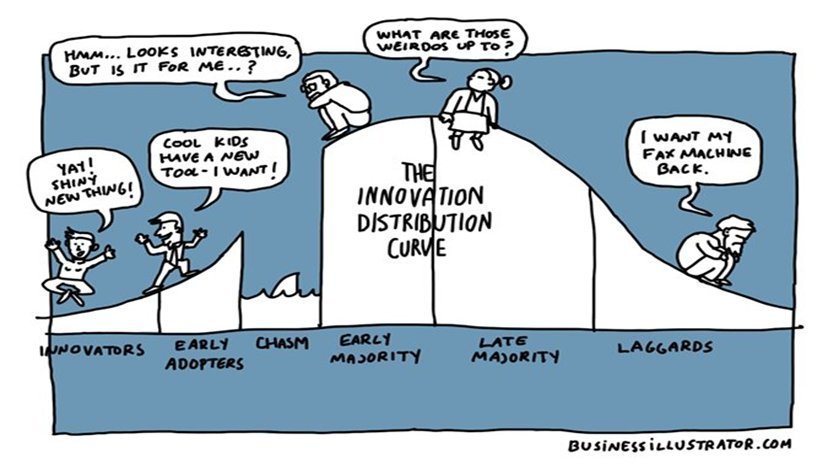

Gary Numan wrote:OP:
Your wife said don't kill the mice. Has that stance softened upon hearing mice make decent chicken food?
Phil Stevens wrote:I cannot think of a reason not to compost it...it's good biomass, after all.

Joshua Myrvaagnes wrote:Very apt.
Can you clarify what's in the "chasm"? I see a shark...and not a tiny one. But I'm assuming there's something that does get across that chasm, and some clarity about what's actually going on there?Henk Lenting wrote:Seems to me that you need to apply some "diffusion of innovation" theory, where each fase needs specific kinds of communication

(Not my picture)
Most information out there now is aimed at the very first and maybe the second fase of innovation. You'll never reach masses with only communications like that.



Amy Gardener wrote:This may sound unusual but I've met some wonderful teachers at living history museums. ... I did a search on living history museums in the Netherlands and found Nederlands Openluchtmuseum. I'd love to check that open air museum out!
